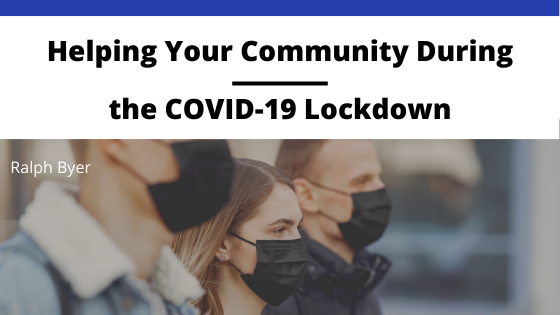With most of the United States and the rest of the world still under lockdown during the coronavirus pandemic, it can be difficult to feel useful. However, even with social distancing in effect, there are many ways to connect and help the community and make sure neighbors are receiving the help they need in the months ahead.
Support Local Restaurants and Stores
Want to make sure your favorite local businesses will be able to survive the shutdown? Order food from local restaurants as delivery or pickup. To make sure the restaurant gets as much support as possible, order directly through them and not a third party delivery app which may take up to 30% of the gross purchase amount. For other small businesses, consider buying gift cards now to help them survive this time that you can use later.
Donate Blood
With fewer people donating blood and plasma due to lockdowns, there is a greater need now more than ever. In March, the American Red Cross announced the U.S. is facing a severe blood shortage with 86,000 fewer blood donations in recent weeks. Visit the American Red Cross to find out where you can donate blood in your area which is considered an essential activity in every state. You can donate whole blood every 56 days and plasma up to two times per week.
Volunteer Your Time
Many communities are coming together to deliver supplies and food to those most at need including out-of-work families and seniors. In New York City, for example, the volunteer group Invisible Hands delivers supplies and groceries to at-risk older adults in the city. There are other unique ways to volunteer, too; the organization Dorot is helping alleviate social isolation among the homebound and seniors with weekly phone calls by volunteers.
Donate Food and Money
If you can, consider donating money and food to a local food bank. School closure, unemployment, and shutdowns of nonessential businesses have caused skyrocketing demand on food banks. Depending on the food bank, just a $1 donation is enough to provide 2 to 5 meals to seniors and families in need. Ask your local food bank what food they need most or donate money that they can use to purchase food in bulk.
